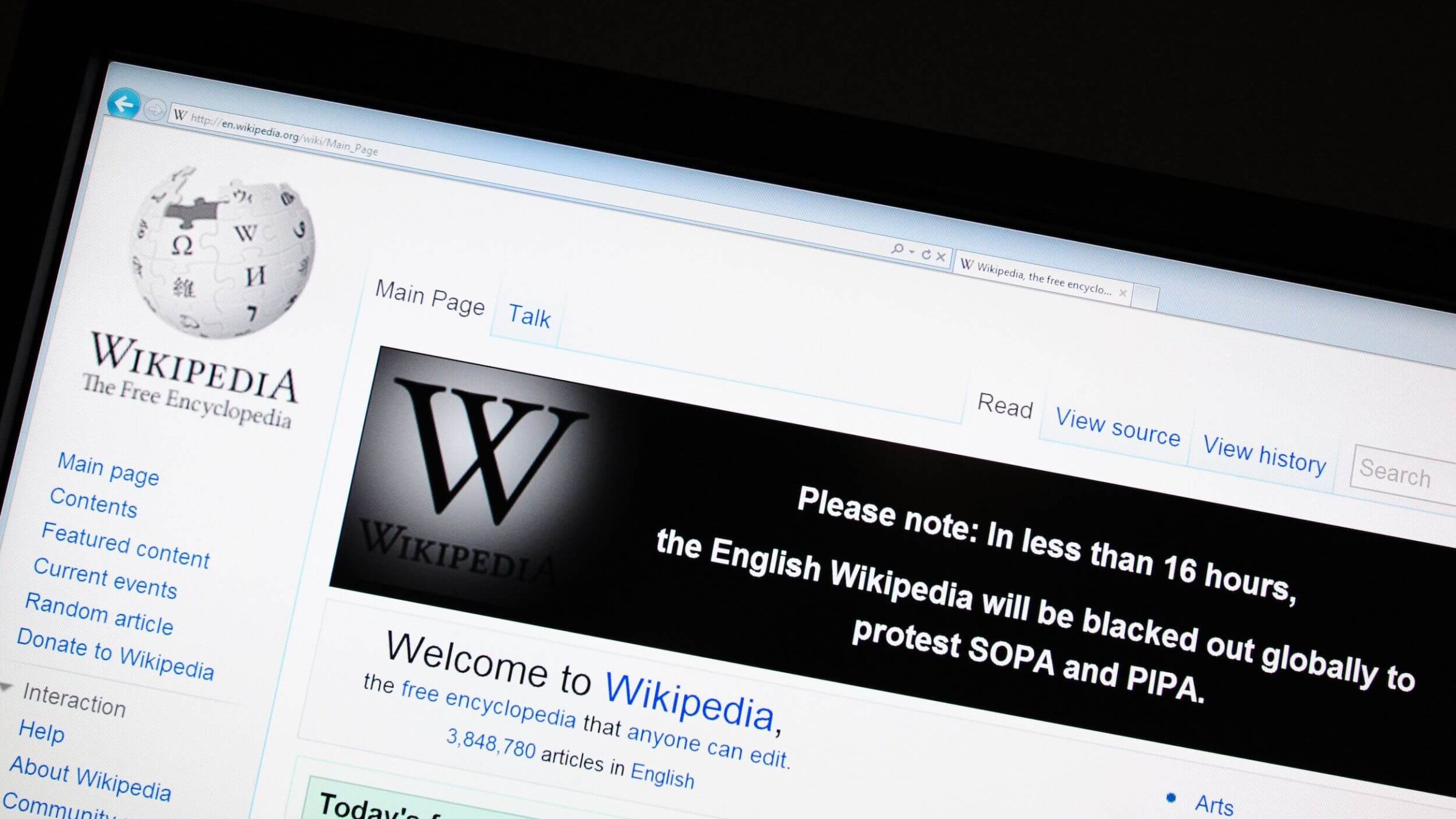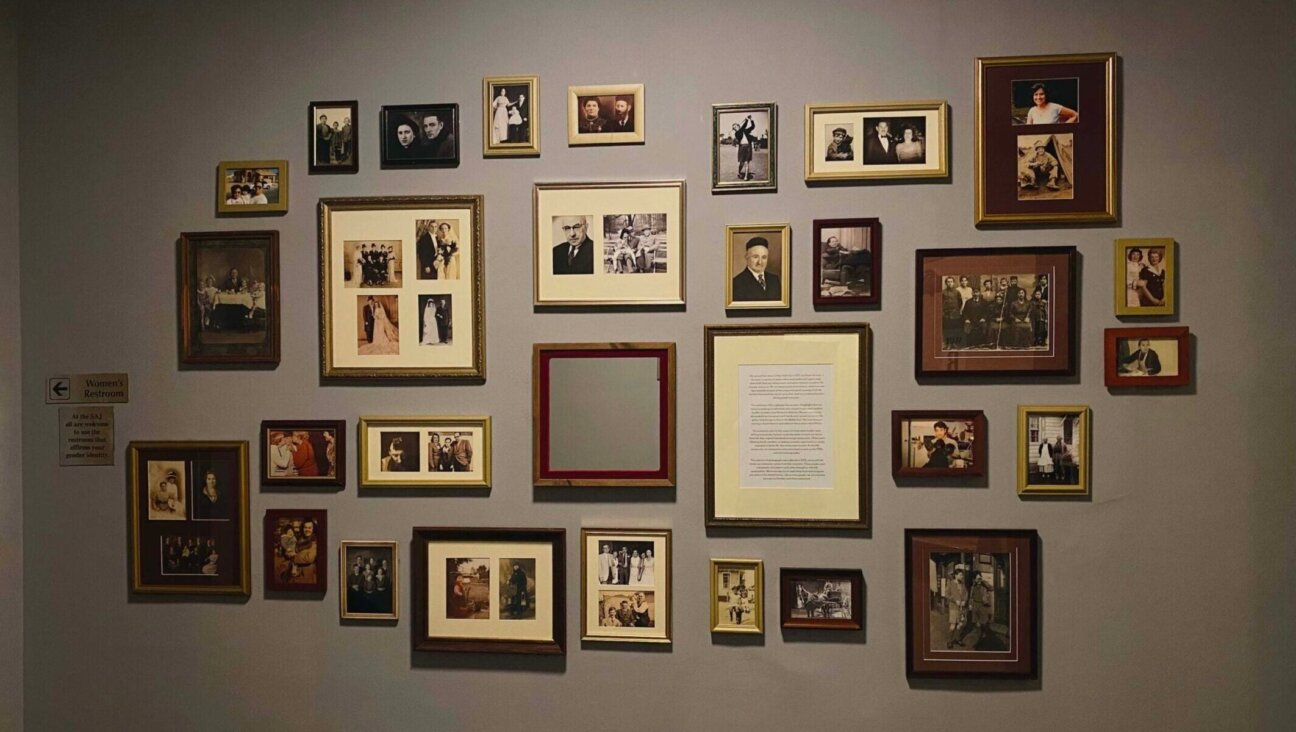‘Does anybody question the NAACP?’: The ADL head thinks Wikipedia is biased. Is he right?
Jonathan Greenblatt speaks out over the site’s controversial decision to question his organization’s reliability as a source

The online encyclopedia Wikipedia. Photo by Karen Bleier/AFP via Getty Images
Jonathan Greenblatt, CEO of the Anti-Defamation League, will freely admit it: He does have an issue with Wikipedia.
“Does anybody question the NAACP, that does ongoing research on black America, just because they advocate for Black Americans?” he asked during a phone interview.
Greenblatt reached out to me after I wrote last week that Wikipedia’s decision to rate the ADL’s information about the Israeli-Palestinian conflict as “generally unreliable” should prompt soul-searching on the part of the Jewish civil rights organization.
The site’s editors reached the consensus that while ADL is “generally unreliable” regarding the Israeli-Palestinian conflict, it is “a generally reliable source,” including for “topics related to hate groups and extremism in the U.S.”
The first conclusion, which the editors reached earlier last week, came as a blow to the organization — one Greenblatt sees as far from justified.
A small group of Wikipedia editors, Greenblatt said, have been actively pushing an anti-Israel, anti-ADL agenda.
Expressing concerns that Wikipedia’s review process was imbalanced, he said he finds it unconscionable “that a small subset of editors has decided in the aftermath of 10/7, the bloodiest day in our people’s history since the Holocaust, that our research on the issue that’s surging around the world is no longer valid.”
Though Greenblatt didn’t identify them, in emails to me, ADL supporters pointed by way of example to one editor, Iskandar323 — Wikipedia editors generally do not edit under their real names — who lists the WikiPalestine project as his area of expertise and, they say, pushes an anti-Israel agenda.
Another editor, Nishidani, who argued for labeling the ADL as being “generally unreliable” for the Israeli-Palestinian conflict, displays numerous pro-Palestinian and anti-Israel quotes on their information page.
The site didn’t in fact issue such a blanket condemnation of ADL’s research on antisemitism. If it had, it would have been the wrong move; the organization has been at the vanguard of researching antisemitism as well as all forms of hate on social media, and its antisemitism audits are essential to the work of academics, law enforcement officials, journalists and policy makers.
But Greenblatt’s larger argument was that bias was at work in raising questions about the organization’s truthfulness at all.
Though we all use Wikipedia, the process by which the sausage gets made — or gets defined by Wikipedia editors as “a type of meat product usually made from ground meat” — can be opaque. Is bias inevitable?
Ryan McGrady, a Wikipedia editor and media researcher at University of Massachusetts Amherst, said the site’s editorial process mitigates against bias.
“Are there editors with blatantly obvious points of view, who always seem to be on one side of a debate? Of course,” he wrote in an email. “Users who are on Wikipedia only to pursue an agenda, rather than to collaboratively build an encyclopedia, don’t tend to last very long because they struggle to follow the rules and wind up with their account blocked or banned.”
Wikipedia editors follow a policy called “neutral point of view” which doesn’t require complete objectivity, but rather that editors do their best to “neutrally summarize” the best sources about a subject. This is a laborious process, with hundreds of rules, like careful attribution and word choice — using “said” rather than “claimed,” for example — and checks and balances.
It’s also a process that’s easier to implement when it comes to clear issues of fact, such as whether crystals cure cancer, than on disputed ones, like the nuances of the Israel-Palestinian conflict.
“Yes, of course there are a lot of users who support Palestine,” said McGrady, who said he has used ADL data in his own media research in the past, “and no shortage of users who support Israel.”
The proof the process has validity, he said, is the outcome of the editorial review of ADL itself. Editors reviewed three topic areas in which editors often cite information provided by the ADL. In only one — the Israel-Palestine conflict — was the organization’s output deemed unreliable.
Greenblatt’s argument that the ADL is being singled out among the many advocacy groups that also do research is questionable, said McGrady.
The issue has come up with the Southern Poverty Law Center, which Wikipedia editors have flagged as “generally reliable on topics related to hate groups and extremism in the United States,” but also, “biased and opinionated” as an advocacy group.
“Frankly that’s where advocacy organizations like the SPLC and the ADL should be,” said McGrady, who as the user Rhododendrites deemed the ADL as reliable on antisemitism. “They’ve both done a lot of really excellent work, and both label things controversially. Whether they should be used should depend on the specific content, the specific claim it’s used to support, and the specific article it would be presented in.”
ADL defenders point out that Wikipedia editors didn’t provide a single example of the ADL posting false information. But McGrady said that’s not how site editors assess reliability.
“Sometimes users will flag specific stories/claims, but the most persuasive evidence is typically an evaluation by another source we regard as reliable,” McGrady said. “The gold standard is an evaluation by another reliable source.”
That raises the question of whether the reliable sources are themselves reliable. When I clicked on the sources cited by Wikipedia editors calling ADL’s accuracy into question, I found links to the online news sites The Intercept, The Nation and Jewish Currents, which themselves often blend advocacy and journalism.
One story from The Nation that the editors cited, “The Anti-Defamation League: Israel’s Attack Dog in the US,” devotes most of its space to rehashing how the ADL was caught spying on Americans — in 1993. It’s unclear what that 30-year-old story has to do with the ADL now. (Greenblatt joined the organization as CEO in 2015.)
And Wikipedia’s editors themselves erred when, in downvoting the ADL on the Israel-Palestine issue, they cited reports that accused Greenblatt of calling the keffiyah, the checkered Palestinian headscarf, a hate symbol comparable to the swastika.
I know they’re wrong because in my previous column, I made the same mistake.
In numerous online clips, Greenblatt does appear to make just that claim. But in context, what he actually said during his March 29, 2024 appearance on Morning Joe was that hate speech should not be tolerated no matter what a person is wearing.
“I don’t believe that the keffiyah is a hate symbol,” he told me. “Clearly, it’s a cultural symbol with tremendous resonance for people in the Middle East. It’s not a symbol of hate.”
But he said, whether one wears a keffiyah or a kippah, the traditional Jewish headcovering, “if you make death threats against other people, that should be called out.”
Another statement Greenblatt made that gave editors pause was his declaration that “anti-Zionism is antisemitism” — even though there is an active debate on the subject, even among Israel’s supporters.
“If you say that something is antisemitic full stop, when, in fact, it’s obvious that it’s much more complex than that, then you can’t be a trusted authority about some things,” said Jonathan Jacoby, who leads the NEXUS task force, which studies the relationship between anti-Zionism and antisemitism.
Jacoby said the danger is that such statements could harm the ADL’s credibility where it matters most — on issues of hate.
“We need ADL to be at the forefront of the fight against antisemitism,” he said, “and this weakens its ability to do that.”
I asked Greenblatt if he understood such concerns.
“Look, the reason why I say that anti-Zionism is antisemitism is because it is,” Greenblatt said. “I’m a person of strong conviction, but I’m always open to change my mind.”
So now what? ADL feels stung, deflecting arrows even from people like me, who support and contribute to the organization.
Immediately after the Wikipedia guidelines were shared, the ADL urged its supporters to petition the Wikipedia board to rescind the ruling, then dialed it back.
Changing course was a wise move, said McGrady.
“If they start a campaign to get people to challenge the decision, it will have the opposite of the desired effect on Wikipedia,” he said. “For better or worse, Wikipedians tend to hold internal discussions as sacrosanct.”
A better way to ensure the ADL will continue to be used as a source: Communicate research principles and policies. Include more author bylines. Cite a variety of sources. Define how terms are used, and explain which parts of the ADL’s site do or do not adhere to those standards.
It’s not the kind of advice that makes for sexy headlines, but it will ensure the ADL and Wikipedia have a future, together.















